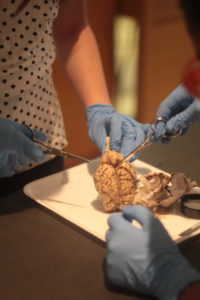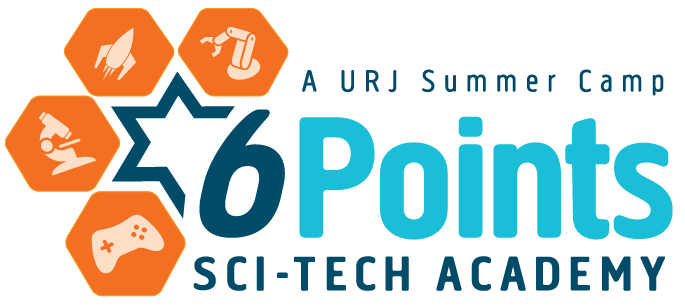By Delaney Cotton
“Righteousness was asleep until it was awakened by Abraham” – Midrash Tehillim
Everyday people make decisions. We decide what clothes to wear, who to interact with, and when to speak our minds. In each act we perform there is potential to do good. Here at Sci-Tech, we have counselors and instructors who help our campers see that potential. A perfect example of this is in our Biozone workshop. Not only do these campers start off by reciting the Hippocratic oath on Opening Day, but throughout the session they are reminded to have kavod (respect) for the lives lost in the pursuit of science.

This workshop continuously reminds campers of the infinite kesherim (connections) between medical sciences and Jewish practices by having ethical debates on patient care and discussing pikuach nefesh, the Jewish law which states “preservation of human life overrides all else”. One might observe pikuach nefesh when they notice a sick or aging relative abstain from fasting on Yom Kippur, because their personal health takes precedent over the religious practice of fasting. Similarly, while it is a custom to rest on Shabbat, Jewish surgeons are able to perform surgeries, and Jewish patients can receive surgery on Shabbat. Both individuals are acting in accordance with pikuach nefesh: to repair and care for their bodies so they can continue to lead happy and healthy Jewish lives.
Yesterday, our Lead Biozone Instructor Gabby asked the campers how they felt about being organ donors. Some of our upper campers will be driving soon and it’s an option for them to sign up to become a donor when they get their license. So how does this decision intersect with our Jewish values? Gabby began by stating an old teaching that says “you must return your body the way it was given to you,” meaning that removing any organs removed a part of your soul as well. Immediately three campers responded by saying, “in the Jewish faith saving a life comes before everything.” They argued that organ donation was in partnership with pikuach nefesh; that even though it was removing a part of their own body, it was to make someone else’s life easier and maybe even save their life entirely.
Some may argue that science and religion often conflict, but at Sci-Tech we find Jewish texts and teachings that enhance our understanding and help us solve debates between science and religion. We provide the opportunity for our campers to read our ancient teachings, learn about the scientific perspective, discuss with their peers, and come to their own conclusions.
